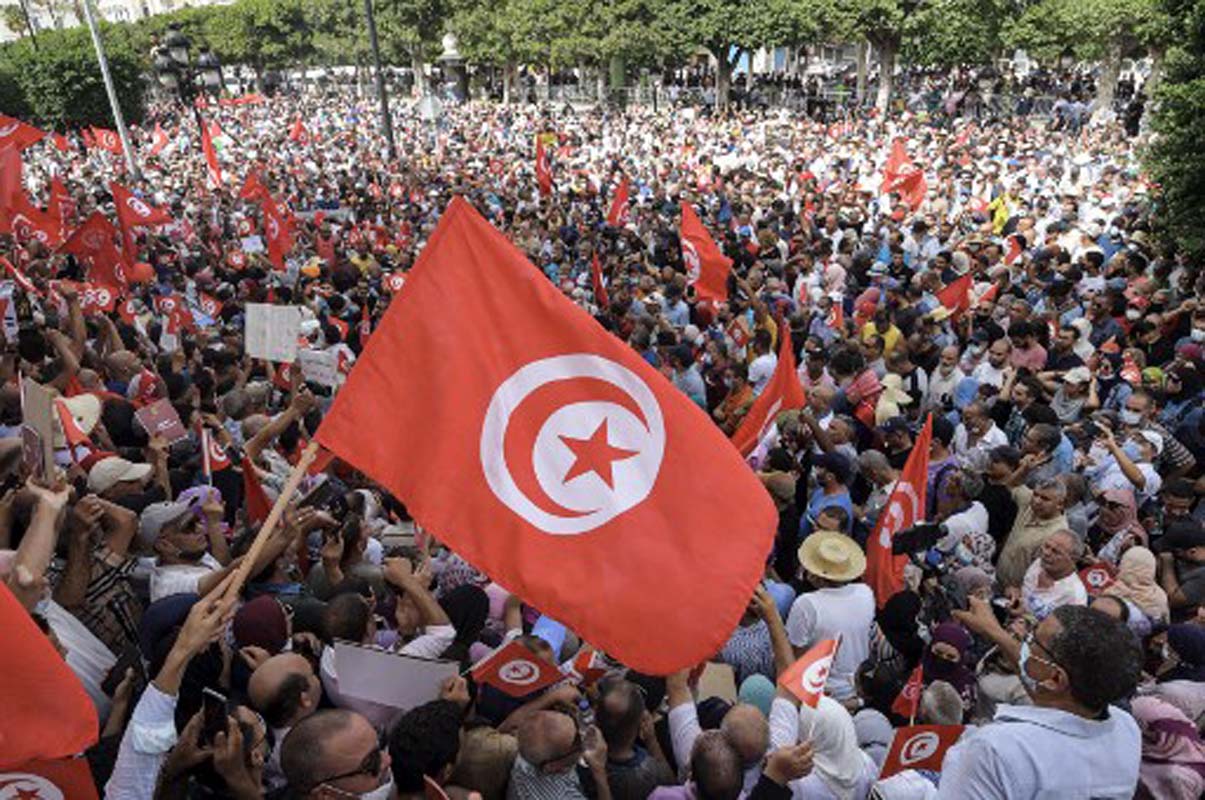
403
Sorry!!
Error! We're sorry, but the page you were looking for doesn't exist.
Tunisian president officially begins his second term
(MENAFN) Tunisian President Kais Saied has officially begun his second term after a decisive victory in the country’s October 6 elections, a race marked by significant controversy. Saied faced only two opponents due to the disqualification of several other candidates amid a crackdown on dissent, which included arrests leading up to the elections.
His inauguration ceremony took place on Monday, although it was notably attended by a limited press, prompting criticism from the National Syndicate of Tunisian Journalists. The organization condemned the exclusion of reporters as “discrimination” and an infringement on journalistic freedom.
During the inauguration, the 66-year-old president expressed his commitment to creating a nation where all citizens can live with dignity. He also called for a “cultural revolution” aimed at addressing pressing issues such as corruption, terrorism, and unemployment, which the World Bank reports stood at 16.2 percent in the first quarter of 2023.
“The challenges we face are numerous and must be tackled promptly,” Saied stated, emphasizing the urgent need for action.
The swearing-in ceremony followed a declaration by the Tunisian Independent High Authority for Elections (ISIE) that Saied had secured 90.69 percent of the votes cast. His closest competitor, businessman Ayachi Zammel, who was sentenced to 12 years in prison just five days before the election, garnered 7.35 percent of the vote. Zammel’s lawyer indicated that his prison time has now been extended to over 30 years due to additional charges related to falsifying ballot endorsements. The third candidate, Zouhair Maghzaoui, received a mere 1.97 percent of the votes. Voter turnout was notably low, with only 28.8 percent of the over nine million registered voters participating.
In response to the election results, opposition figure Maghzaoui accused Saied of manipulating state resources to marginalize his competitors and opponents, suggesting that the elections were held under “exceptionally undemocratic circumstances.”
As Tunisia navigates these political tensions, the legitimacy of Saied’s presidency and the future of democracy in the country remain subjects of intense debate.
His inauguration ceremony took place on Monday, although it was notably attended by a limited press, prompting criticism from the National Syndicate of Tunisian Journalists. The organization condemned the exclusion of reporters as “discrimination” and an infringement on journalistic freedom.
During the inauguration, the 66-year-old president expressed his commitment to creating a nation where all citizens can live with dignity. He also called for a “cultural revolution” aimed at addressing pressing issues such as corruption, terrorism, and unemployment, which the World Bank reports stood at 16.2 percent in the first quarter of 2023.
“The challenges we face are numerous and must be tackled promptly,” Saied stated, emphasizing the urgent need for action.
The swearing-in ceremony followed a declaration by the Tunisian Independent High Authority for Elections (ISIE) that Saied had secured 90.69 percent of the votes cast. His closest competitor, businessman Ayachi Zammel, who was sentenced to 12 years in prison just five days before the election, garnered 7.35 percent of the vote. Zammel’s lawyer indicated that his prison time has now been extended to over 30 years due to additional charges related to falsifying ballot endorsements. The third candidate, Zouhair Maghzaoui, received a mere 1.97 percent of the votes. Voter turnout was notably low, with only 28.8 percent of the over nine million registered voters participating.
In response to the election results, opposition figure Maghzaoui accused Saied of manipulating state resources to marginalize his competitors and opponents, suggesting that the elections were held under “exceptionally undemocratic circumstances.”
As Tunisia navigates these political tensions, the legitimacy of Saied’s presidency and the future of democracy in the country remain subjects of intense debate.

Legal Disclaimer:
MENAFN provides the
information “as is” without warranty of any kind. We do not accept
any responsibility or liability for the accuracy, content, images,
videos, licenses, completeness, legality, or reliability of the information
contained in this article. If you have any complaints or copyright
issues related to this article, kindly contact the provider above.


















Comments
No comment